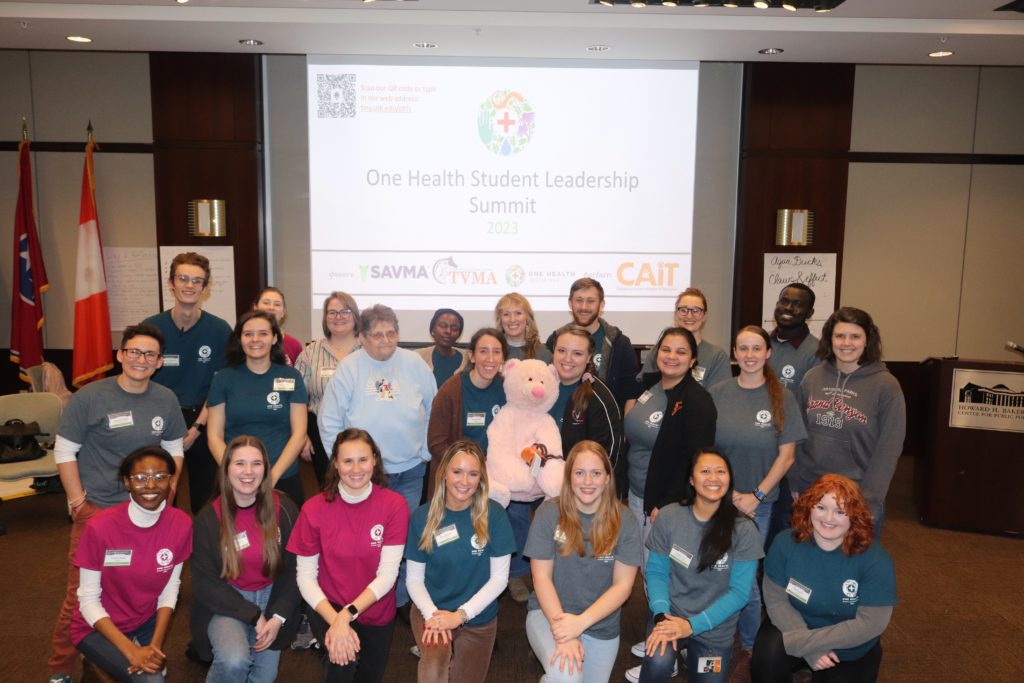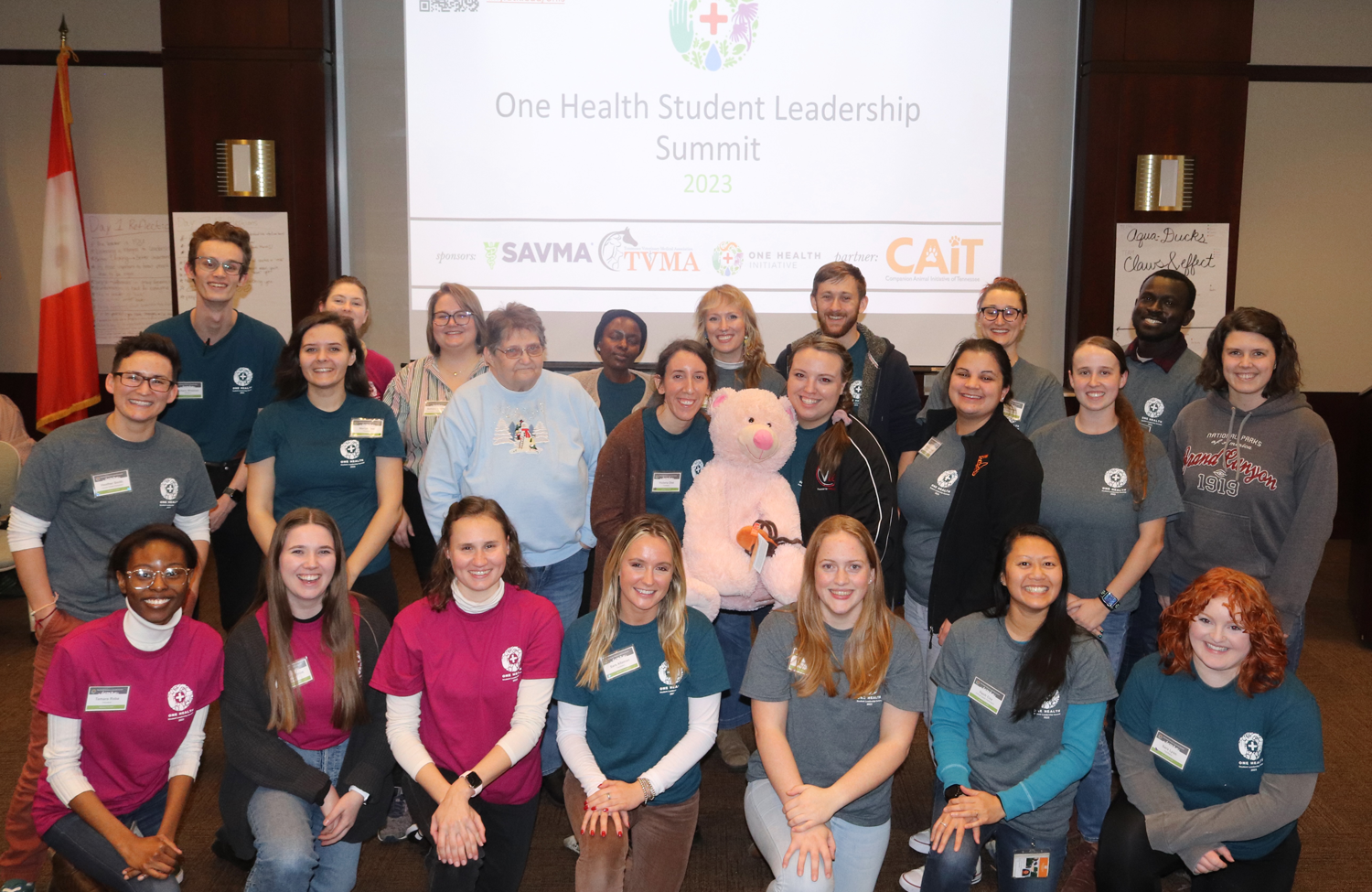
On January 7, 2023, 15 graduate and professional level students checked into the Howard J. Baker Center to engage in the first-ever One Health Student Leadership Summit. Involved in the event were 6 volunteers, 8 facilitators, and 11 in-person speakers. Though the turnout was smaller than expected, this marked the beginning of an initiative on the UT campus which will continue to shed more light on One Health issues as well as highlight key competencies for building and sustaining One Health and other cross-disciplinary projects.
Throughout the summit, there were activities like the Root Cause Activity, where participants were challenged to think backwards from a present day One Health issue. Participants chose to dissect out a phenomenon called colony collapse disorder, which is associated with dwindling bee populations. Participants also engaged in activities that challenged them to work in teams. For example, students were tasked to build a car out of cardboard, wooden wheels, dowels, various papers, and other materials that they thought would make their car great. Each item was given a value, a cost… but instead of having a monetary value attached to these items, they each represented something that might be an important aspect of planning a One Health project (a needs assessment, sustainable materials, etc.).
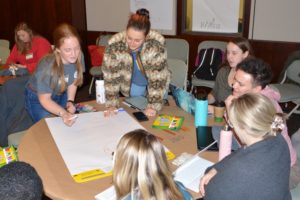
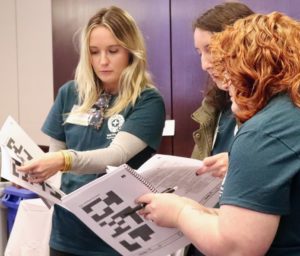
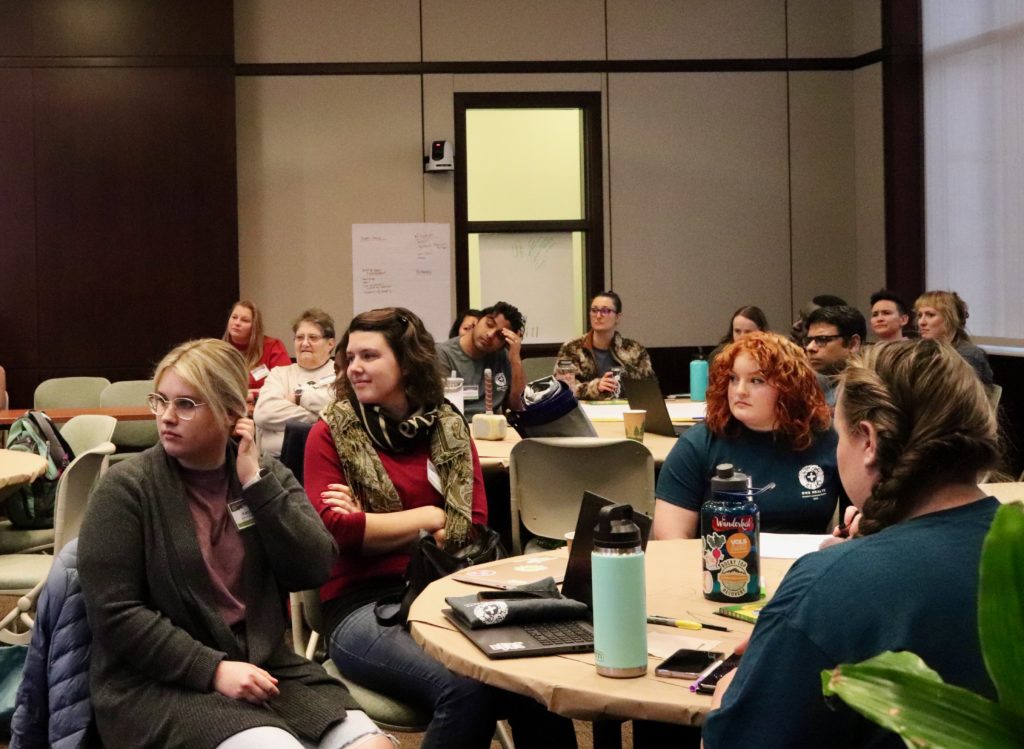
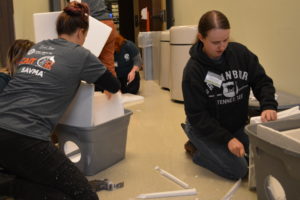
The summit culminated in a community service project that allowed participants to have an impact in an area that embodied One Health. Here, Alexis Niceley from the Companion Animal Initiative of Tennessee (CAIT) explained the importance of taking care of people experiencing homelessness in Tennessee and the free-roaming cat populations, both of which share a large commonality. Oftentimes, especially during the winter months, conditions can become dangerous and life-threatening. With that in mind, students were responsible for building ~17 cat shelters as well as 25 warm packs, with warm packs including reusable items like warm clothing, water bottles, hygiene products, and snacks. Each warm pack also included a handwritten card written by a participant, facilitator, or volunteer. All supplies were intentionally selected based on consultation from CAIT and the Volunteer Ministry Center, as well as the Sustainability Coordinator of UT.
This portion of the summit really resonated with the audience, according to our initial results from our post-event survey. Students were excited to see a One Health project in action and thus passionately contributed to what were called “I will…” statements, written and shared at the closing ceremony. In this final activity, students were challenged to share what they plan to do differently following their experience at the One Health Student Leadership Summit. Participants proudly announced their renewed interest in advocacy, One Health, and community service—all of which were important goals for this project.
